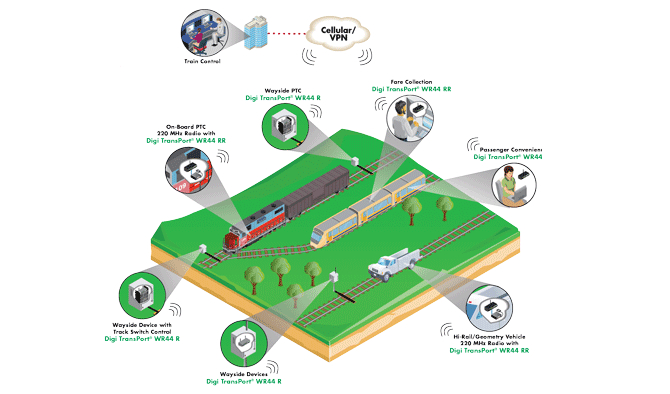There have been a bunch of interesting articles in recent weeks that highlight the rapid expansion of Google’s Android operating system from phones and tablets to all kinds of intelligent devices. They beg the question: is Android becoming the Microsoft Windows of the fast-emerging “Internet of Things.” And, if so, we might ask: ‘What are the security implications of that?’ First the skinny on Android’s growing dominance of the intelligent device sector. Ashlee Vance over at Businessweek.com delved into that with an article “Behind the Internet of Things is Android – and its everywhere.” Vance makes the point that Android is not only the choice for 75% of the handset makers these days – it’s also become the OS of choice for anyone making anything with a processor and a networking stack. The effect of that is akin to what Microsoft encountered when Windows went from being just another PC […]
Infrastructure
Update: Serial Server Flaws Expose Critical Infrastructure
A survey conducted by the firm Rapid 7 has found evidence that widespread vulnerabilities and insecure configuration of ubiquitous networking components known as serial port (or “terminal”) servers, may expose a wide range of companies and critical assets – including point of sale terminals, ATMs and industrial control systems – to remote cyber attacks.(*) The vulnerable devices connected hardware like retail point-of-sale systems at a national chain of dry cleaners, providing direct access to employee terminals from which customer payment information could be accessed. Other exposed systems were used to monitor the location of cargo containers, train cargo as well as HVAC and industrial control systems, Rapid7 said. In the Rapid7 survey, over 114,000 unique IPs were identified in a scan using the Simple Network Management Protocol (SNMP), the vast majority manufactured by one company: Digi International. If left unaddressed, the vulnerable devices give remote attackers direct, administrative access to hardware devices […]
Messy And Loud Hack In South Korea Doesn’t Look State Sponsored
A researcher who has studied the malicious software used in the attacks on media outlets and banks in South Korea this week said the attacks were coordinated, but messy and loud, without many of the hallmarks of a state sponsored hacking operation. Richard Henderson, a Security Strategist at Fortilabs at Fortinet Inc. said that the malware used in the attack was programmed to begin operating at 2:00pm local time, suggesting that those behind it had planned their operation for weeks or months before launching it. Still, Henderson said many details of the attack make it dissimilar from so-called “advanced persistent threat” or APT-style hacks that are carried out by foreign governments or groups working on their behalf. Henderson said that Fortinet analysts first obtained a copy of the malware on March 19, a day before the attacks. Researchers there had already identified the “time bomb” hidden in the code, which was […]
DPRKurious: Is North Korea Really Behind Cyber Attacks On The South?
The news keeps coming out of South Korea, where a mysterious rash of hacks and virus infections early Thursday compromised tens of thousands of machines running at banks, broadcasters and other firms, erasing data and causing widespread disruption. Here’s the latest: South Korean Officials “Strongly Suspect” North Korea South Korean government officials made their most direct statements to date (albeit anonymously) on the possible source of the attack, saying that they had a “strong suspicion” that the government of the Democratic People’s Republic of Korea (DPRK) was responsible. Speaking to the YonHap News Agency, the official, identified as a “high ranking official in the office of President Cheong Wa Dae,” refused to elaborate. However, he may have been referring to the preliminary results of the Korea Communications Commission (KCC) which traced the malicious code responsible for crippling computers at broadcasters and banks to an IP address in China. South Korean […]
Update: Destructive Hacks Hit South Korean Media, Banks
Editor’s Note: Updated to include information from AlienVault on the attacks. – PFR 3/20/2013 Destructive cyber attacks against media outlets and banks in South Korea have ratcheted up tensions on the Korean Peninsula, with charges that the government of reclusive North Korea was behind the hacks. According to a report in South Korea’s Yonhap News Agency, the attacks began at 2:00PM local time in South Korea and affected the computer networks of three broadcasters and two banks. Broadcasters KBS, MBC and YTN all reported that their computer networks were “halted” at that time. Shinhan Bank and Nonghyup made similar reports to the National Police Agency (NPA), according to Yonhap. Unlike past distributed denial of service (DDoS) attacks that are believed to have been launched by the DPRK against the South, the latest incursions come at a time of extreme military tension on the peninsula, and caused damages to South Korean […]

